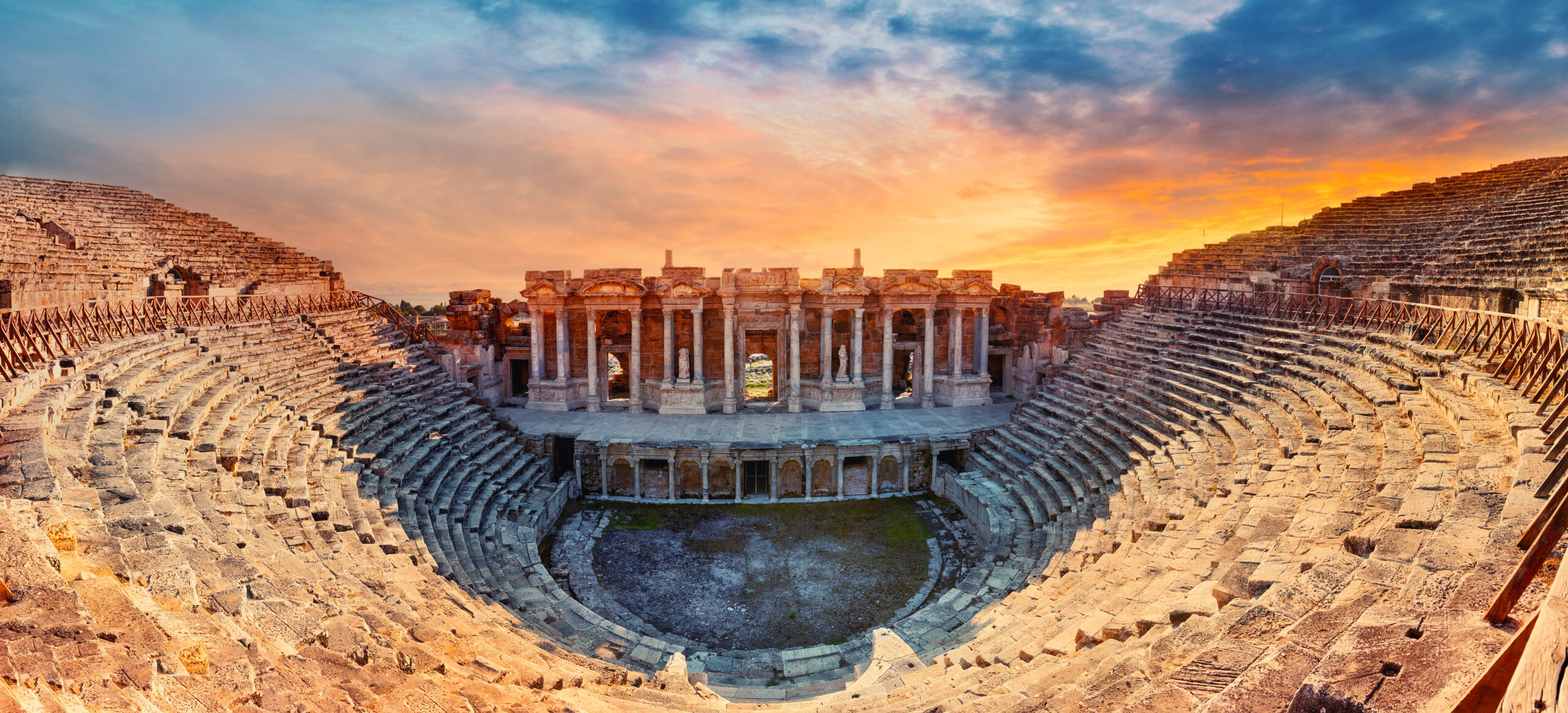The Olympic Games are one of the most celebrated sporting events in the world, but few people realise just how deep their roots go. Originating in ancient Greece nearly 3,000 years ago, the Olympic Games were more than a competition — they were a sacred festival honouring the god Zeus, and a key part of Hellenic culture. This article explores the origins, structure, evolution, and legacy of the original Olympic Games and how they continue to shape modern sports and global unity.
Outline
- The Origins of the Olympic Games
- Olympia: The Sacred Birthplace
- The Events of the Ancient Olympics
- Rules, Rewards and Rituals
- The Role of Religion and Mythology
- Who Could Compete — and Who Couldn’t
- The End of the Ancient Games
- The Modern Revival: 1896 and Beyond
- Lasting Legacy of Ancient Greece
- Visiting Olympia Today
1. The Origins of the Olympic Games
The ancient Olympic Games began in 776 BCE in Olympia, in the Peloponnese region of southern Greece. Though they likely existed before this official date, 776 BCE marks the earliest recorded competition. The Games were held every four years — a period known as an Olympiad, which became a way to track time across the Greek world.
Why were they created?
- To honour Zeus, the king of the gods
- To promote peace and unity among the Greek city-states
- As a test of human strength, endurance, and skill
2. Olympia: The Sacred Birthplace
Olympia was not just a sports venue. It was one of the most important religious centres in ancient Greece, home to:
- The massive Temple of Zeus
- The altar of Hestia, where the eternal flame burned
- A stadium that held up to 40,000 spectators
| Structure | Significance |
|---|---|
| Temple of Zeus | Housed the gold-and-ivory statue of Zeus (a Wonder of the Ancient World) |
| Stadium | Host site for all Olympic events |
| Bouleuterion | Council house where athletes took sacred oaths |
3. The Events of the Ancient Olympics
The ancient Games began as a one-day event but expanded over time to a five-day festival. Events were strictly for male Greek citizens.
Core Events:
- Stadion – A 192-metre foot race and the original Olympic event
- Diaulos – A double-length sprint
- Dolichos – Long-distance race (up to 24 laps)
- Wrestling & Boxing
- Pankration – A brutal no-holds-barred fight
- Pentathlon – Running, jumping, discus, javelin, and wrestling
- Chariot racing – The most spectacular and dangerous event
4. Rules, Rewards and Rituals
The Olympics were not only physical but deeply spiritual.
Key Features:
- Truce of Zeus (Ekecheiria): All wars stopped during the Games
- No cheating — violators were fined, and statues (Zanes) were erected in their dishonour
- Winners received olive wreaths, not medals
- Victors gained immortal fame, statues, and free meals for life in their home city
Fun Fact: Athletes competed naked to honour the gods and celebrate the human body.
5. The Role of Religion and Mythology
The Olympics were part of a Panhellenic festival, deeply tied to mythology and ritual.
- Ceremonies honoured Zeus and Pelops, a mythical king and racer
- Sacrifices and feasts were central to the event
- The flame at Olympia inspired the modern Olympic torch tradition
6. Who Could Compete — and Who Couldn’t
| Group | Allowed to Participate? |
|---|---|
| Free Greek men | Yes |
| Slaves or foreigners | No |
| Married women | No (even as spectators) |
| Unmarried women | Sometimes allowed as spectators |
| Women (special games) | Heraean Games for female athletes |
The Heraean Games were held separately to honour Hera and included footraces for unmarried women.
7. The End of the Ancient Games
The original Games lasted for over 1,100 years, but ended in 393 CE when Roman Emperor Theodosius I banned pagan festivals. Olympia gradually fell into disrepair and was buried by earthquakes and floods until rediscovered by archaeologists in the 18th century.
8. The Modern Revival: 1896 and Beyond
In the late 19th century, French educator Pierre de Coubertin launched a movement to revive the Olympic spirit. The first modern Games were held in Athens in 1896, symbolically reconnecting to their origins.
Modern Olympic Values:
- Peace and unity through sport
- Inclusion of all nations
- Emphasis on amateur athleticism (originally)
The Olympic flame and opening ceremonies are directly inspired by ancient rituals at Olympia.
9. Lasting Legacy of Ancient Greece
The Olympics are just one example of how ancient Greek ideas shaped the modern world.
| Greek Legacy | Modern Influence |
|---|---|
| Athletic competition | Worldwide sporting events like the Olympics |
| Olympic ideals | Sportsmanship, excellence, honour |
| Calendar use | The term “Olympiad” still denotes a four-year period |
| Architecture | Stadium design and civic planning inspiration |
10. Visiting Olympia Today
Olympia is one of Greece’s top archaeological sites. A visit there offers:
What You’ll See:
- Ruins of the Temple of Zeus and Temple of Hera
- The ancient stadium and training gymnasiums
- The Olympic flame altar, used to this day
- The Olympia Museum with artefacts and statues
Travel Tip: Visit early in the morning or late afternoon to avoid crowds and summer heat. Entry is affordable and includes access to both the site and the museum.
Final Thoughts
The Olympic Games are more than a global competition — they are a living link to an ancient culture that valued honour, physical excellence, and divine celebration. Whether you’re a history buff or sports enthusiast, understanding the Greek origins of the Olympics adds a powerful layer of meaning to every medal and match today.
Ready to walk in the footsteps of ancient champions? Olympia awaits.








